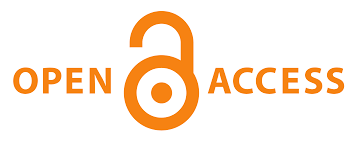Teaching English for Specific Purposes at Vocational Institution: Teachers’ Beliefs, Practices and Challenges
Main Article Content
Sabarniati Sabarniati
Naria Fitriani
Kurniawati Kurniawati
The intention of this study is to conceive teachers’ reflections regarding their experiences of teaching English for Specific Purpose (ESP) at Politeknik Aceh. Their convictions, practices as well as challenges were scrutinized in order to figure out better implementation for ESP classes in the future. Three ESP teachers were interviewed besides observing their classroom and analyzing their syllabus design. They agree that ESP is a compulsory subject in vocational institutions. The students need to prepare themselves for work life ahead, because beside communicating with local people, they surely will interact and communicate with the people from other countries globally. The syllabus was designed by the teachers adapting with the students’ need and industrial growth. They constantly revise and upgrade their syllabus and teaching materials depending on current situation of the students and their work targets. The teachers encountered similar challenge in their experiences of teaching ESP, that they have to deepen their insights regarding the field of the study being taught. Surprisingly, they even exchange knowledge with the students, for example; the teachers learnt about electrical from the students whilst teaching ESP for electrical engineering students. Moreover, the most challenging tendency in teaching ESP at Politeknik Aceh is the requirement of deep understanding of industry-specific terminology and concepts. So, it is essential to regularly update materials to reflect industry advancements, incorporate more authentic and current resources, and provide professional development opportunities for ESP teachers.
Agustina, T. (2014). English For Specific Purposes (ESP): An Approach Of English Teaching For Non-English Department Students. Beta Jurnal Tadris Matematika, 7(1), 27. https://doi.org/10.20414/betajtm.v9i2.7
Ahmed, K., Ali, S., & Khan, A. (2023). ESP needs analysis of productive skills: A case study of engineering students. Pakistan Languages and Humanities Review, 7(3), 800-812. https://doi.org/10.47205/plhr.2023(7-III)69
Bowe, G. A. (2009). Document Analysis as a Qualitative Research Method. Qualitative Research Journal, 9(2), 27–40. https://doi.org/10.3316/qrj0902027
Chaovanapricha, T., & Champakaew, W. (2023). 31.Thailand’s higher education ESP practitioners: Problems, solutions and a potential practices model. Asian Journal of Education and Training, 9(4), 88–97. https://doi.org/10.20448/edu.v9i4.5037
Nabung, A., Emilia, E., & Purnawarman, P. (2024). Challenges In Integrating English For Specific Purposes Into The Indonesian TEFL Curriculum: A Literature Study. Premise: Journal of English Education and Applied Linguistics, 13(3), 817-841. https://doi.org/10.24127/pj.v13i3.8880
Fitria, T. N. (2024). Teaching English for Specific Purposes (Esp): Teachers’ Role and Their Challenges. PRIMACY Journal of English Education and Literacy, 2(1), 54–70. https://doi.org/10.33592/primacy.v2i1.3446
Gultom, S., Hutauruk, A. F., & M. Ginting, A. (2020). Teaching Skills of Teacher in Increasing Student Learning Interest. Budapest International Research and Critics Institute (BIRCI-Journal): Humanities and Social Sciences, 3(3), 1564–1569. https://doi.org/10.33258/birci.v3i3.1086
Hotak, S., Hekmat, A. M., Kamal, M. M., & Rogmal, S. (2024). Investigating English for Specific Purpose (ESP) Learners’ Perspectives towards Factors Causing Demotivation in ESP Classes. JETLEE: Journal of English Language Teaching, Linguistics, and Literature, 4(1), 13-26. https://doi.org/10.47766/jetlee.v4i1.1803
Indasari, N. L., Fajriyah, L., & Rosyidi, A. (2024). Strategies for improving ESP learners’ language skills. Attadrib: Jurnal Pendidikan Guru Madrasah Ibtidaiyah, 7(1), 41–51. https://doi.org/10.54069/attadrib.v7i1.719
Isma, A., Rasmin, L. O., Hutauruk, T. L., Lestari, I. W., Yuzar, E., Evenddy, S. S., Hamer, W., Wandira, B., Achmad, S., & Rahman, F. (2023). ESP Pedagogy: Designing Effective English for Specific Purposes Courses (1st ed.). Yayasan Kita Menulis.
Iswati, L., & Triastuti, A. (2021). Voicing the challenges of esp teaching: Lessons from esp in non-english departments. Studies in English Language and Education, 8(1), 276–293. https://doi.org/10.24815/siele.v8i1.17301
Kumar, A. (2022). Observation method. International Journal of Scientific Research, May, 100–113. https://doi.org/10.4324/9781003167242-6
Marsigit, D. (2008). English for vocational education [Unpublished paper presented at the Workshop of Teachers Professional Development]. SMK Muhammadiyah, Klaten, May 1–11.
Muliyah, P., & Aminatun, D. (2020). Teaching English for Specific Purposes in Vocational High School: Teachers’ Beliefs and Practices. JET (Journal of English Teaching), 6(2), 122–133. https://doi.org/10.33541/jet.v6i2.1756
Natsir, M., Purba, A. S., Ellyana, E., Saragih, A. T., & Amal, B. K. (2022). English Teaching in an Indonesian Vocational High School Majoring Industrial Machinery Engineering. AL-ISHLAH: Jurnal Pendidikan, 14(2), 1743–1754. https://doi.org/10.35445/alishlah.v14i2.1221
Nugroho, H. A. (2018). Efl teachers’ need of language proficiency professional development: When policy and practice collide. International Journal of Language Education, 2(2), 74–82. https://doi.org/10.26858/ijole.v2i2.6373
Putri, N. R., & Sari, F. M. (2021). Investigating English teaching strategies to reduce online teaching obstacles in the secondary school. J. English Lang. Teach. Learn, 2(1), 23-31. https://jim.teknokrat.ac.id/index.php/english-language-teaching/article/view/780
Rachmawati, D. L., & Fadhilawati, D. (2024). Exploring the Challenges Faced by ESP Students in Writing Academic Essay. JETLEE: Journal of English Language Teaching, Linguistics, and Literature, 4(2), 190-206. https://doi.org/10.47766/jetlee.v4i2.2962
Rusmala, M. (2018). Peran mata kuliah Bahasa Inggris dalam pendidikan vokasi di STKOM Sapta Computer Kalsel. Prosiding Seminar Nasional Pendidikan, 201–216. https://jurnal.ustjogja.ac.id/index.php/semnasmpd/article/view/3037
Sahoo, R. (2022). Interview as a Tool for Data Collection in Educational Research. Tools for Data Collection, 2(1), 1–13. https://www.researchgate.net/publication/360313105
Sakarinto, W. (2021, Agustus). Arah pengembangan pendidikan tinggi vokasi di Indonesia (Wikan Sakarinto, Ph.D., Dirjen Pendidikan Vokasi, Kemendikbudristek). Kementerian Pendidikan, Kebudayaan, Riset, dan Teknologi.
Schleicher Andreas. (2018). The Future of Education and Skills: Education 2030. OECD Education Working Papers, 23. http://www.oecd.org/education/2030/E2030
Septiani, E., Petrus, I., & Mirizon, S. (2021). The Correlations Among Teachers’ Competences, Students’ Learning Motivation, and Students’ English Proficiency. Eralingua: Jurnal Pendidikan Bahasa Asing Dan Sastra, 5(1), 143. https://doi.org/10.26858/eralingua.v5i1.14316
Suherman, A., & Kertawijaya, L. (2023). Challenges Perceived by Indonesian ESP Teachers in Post-Pandemic Era: A Survey from a Higher Education Institution. Scope : Journal of English Language Teaching, 7(2), 129. https://doi.org/10.30998/scope.v7i2.15526
United Nations Educational Scientific and Cultural Organisation (UNESCO). (2022). Higher Education Global Data Report. 3rd UNESCO World Higher Education Conference (WHCE2022), May, 52.
Vesna Prodanovska-Poposka. (2022). Classification of Esp and Overview of the Language Skills in Esp Context. September, 117–131. https://www.researchgate.net/publication/363720185
Widodo, H. P. (2016). Teaching English for Specific Purposes (ESP): English for Vocational Purposes (EVP). English Language Education, 5, 277–291. https://doi.org/10.1007/978-3-319-38834-2_19
Zhang, L. (2014). Vocational College English Teaching Inspiration from Sociocultural Theory and Interaction Hypothesis. Proceedings of the International Conference on Education, Language, Art and Intercultural Communication, 3(Icelaic), 206–209. https://doi.org/10.2991/icelaic-14.2014.43




